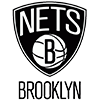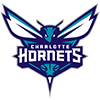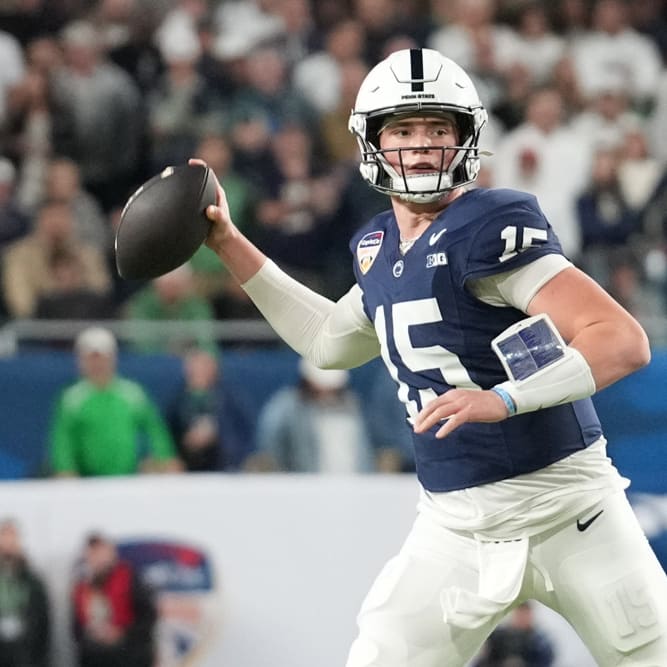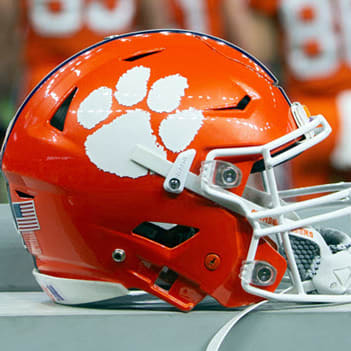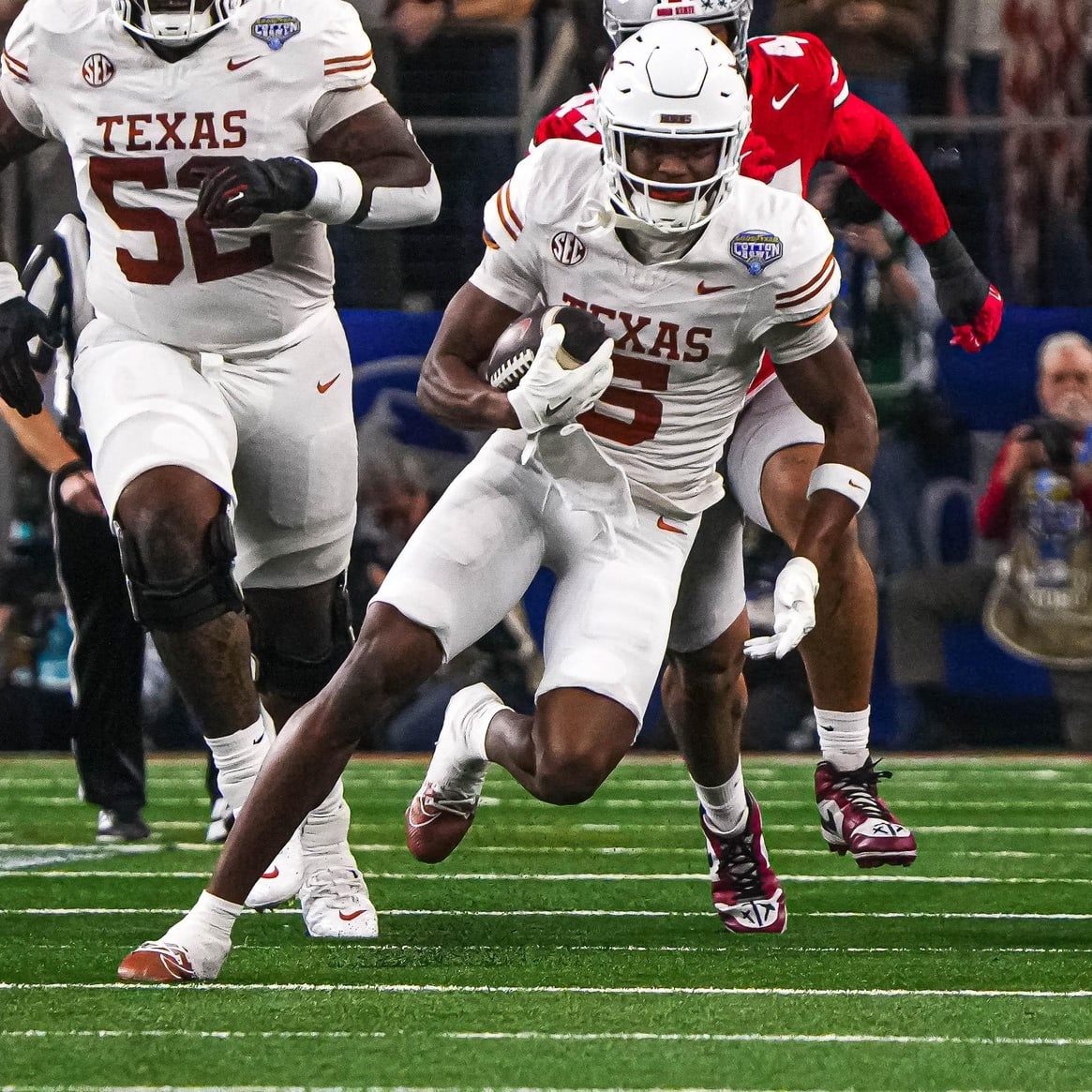Although Cincinnati ran away with the Big East title thanks to a 12-1 season in 2009, the conference was remarkably competitive as a whole. As many as six teams have emerged as powers in the conference with Cincinnati, Pittsburgh, Rutgers, West Virginia, Connecticut and South Florida combining for 56 wins last year.
But even Cincinnati was never completely safe, escaping with victories against Connecticut, West Virginia and Pittsburgh by a margin of just nine points.
The conference's toughness was especially illustrated in the case of Connecticut, an 8-5 team that was 15 points away from a perfect season. Their loss margins against Cincinnati, Pittsburgh, North Carolina, Rutgers and West Virginia averaged exactly three points per game, including two-point losses against Cincinnati and North Carolina.
The 2010 season brings an interesting set of questions to the equation. The mastermind behind Cincinnati's meteoric rise to dominance, coach Brian Kelly, has taken off for Notre Dame. Former Central Michigan head coach Butch Jones takes over.
This presents an exciting situation for Cincinnati's fantasy prospects, because it was Jones' offense that resulted in such huge numbers for quarterback Dan LeFevour and receiver Antonio Brown last year. Take note of that in regard to quarterback Zach Collaros and his receivers this year.
Interestingly enough, this is the second time Jones has replaced Kelly as head coach. Kelly coached Central Michigan before leaving for Cincinnati in 2006, at which point Jones took over. Cincinnati hopes Jones can work his post-Kelly magic again in 2010, as
Although Cincinnati ran away with the Big East title thanks to a 12-1 season in 2009, the conference was remarkably competitive as a whole. As many as six teams have emerged as powers in the conference with Cincinnati, Pittsburgh, Rutgers, West Virginia, Connecticut and South Florida combining for 56 wins last year.
But even Cincinnati was never completely safe, escaping with victories against Connecticut, West Virginia and Pittsburgh by a margin of just nine points.
The conference's toughness was especially illustrated in the case of Connecticut, an 8-5 team that was 15 points away from a perfect season. Their loss margins against Cincinnati, Pittsburgh, North Carolina, Rutgers and West Virginia averaged exactly three points per game, including two-point losses against Cincinnati and North Carolina.
The 2010 season brings an interesting set of questions to the equation. The mastermind behind Cincinnati's meteoric rise to dominance, coach Brian Kelly, has taken off for Notre Dame. Former Central Michigan head coach Butch Jones takes over.
This presents an exciting situation for Cincinnati's fantasy prospects, because it was Jones' offense that resulted in such huge numbers for quarterback Dan LeFevour and receiver Antonio Brown last year. Take note of that in regard to quarterback Zach Collaros and his receivers this year.
Interestingly enough, this is the second time Jones has replaced Kelly as head coach. Kelly coached Central Michigan before leaving for Cincinnati in 2006, at which point Jones took over. Cincinnati hopes Jones can work his post-Kelly magic again in 2010, as he took Central Michigan to first-, second- and first-place finishes in the MAC in his three years at the school.
Beyond that, it's difficult to identify any particular team as the single greatest threat to Cincinnati's attempt at repeating as conference champs in 2010. Pittsburgh, Rutgers, West Virginia, Connecticut and South Florida have reasons to hope for improvement in 2010. Of course, they all come with new questions, too.
Rutgers lost star wideout Tim Brown and two first-round NFL picks in cornerback Devin McCourty and offensive tackle Anthony Davis, but not all is bad in New Jersey. The good news is that they return their impressive 2009 freshman duo of quarterback Tom Savage and receiver Mohamed Sanu. Sanu was one of the more shocking true freshmen in the country last year, going from a relatively obscure safety recruit to producing 985 yards from scrimmage while running for five touchdowns, catching three and throwing for another.
Pittsburgh brings back Dion Lewis, who undoubtedly posted one of the historically best freshman running back performances last year, but it heads into the year with the unproven Tito Sunseri starting at quarterback.
West Virginia loses starting quarterback Jarrett Brown but brings back the incomparable Noel Devine along with a young and improving defense that could be the best in the conference this year.
Connecticut and South Florida both have serious concerns among their defensive backs, but both schools have historically done a good job of replacing talent from year to year. It will be particularly interesting to see what South Florida is capable of with new head coach Skip Holtz, who recently turned around the East Carolina program in Conference USA.
In any case, there's no doubt that the conference's main hope of competing for a national title is in Cincinnati. Collaros looked magnificent in limited time last year, and history says that Butch Jones won't have any trouble picking up where Brian Kelly left off.
The biggest game of the year for the Big East is obvious: Sept. 25, Oklahoma at Cincinnati. If the Bearcats can take out the mighty Sooners and run the table within the conference, there's very little preventing them from finding the national championship game.
Players to Target
Zach Collaros, QB, Cincinnati
It's difficult to recall the last time a quarterback performed as well as Collaros did as a sophomore last year, even if the sample size was small. In throwing for 1,434 yards, 10 touchdowns and two interceptions, Collaros completed a seemingly impossible 75 percent of his passes while averaging 11.6 yards per attempt. He was also exceptional as a runner, going for 344 yards and four touchdowns on just 57 rush attempts. There's reason to believe Collaros' numbers should be similarly massive in 2010, as the offense of new head coach Butch Jones has a history of putting his quarterbacks in position for enormous stats. Dan LeFevour threw for 3,438 yards, 28 touchdowns and seven interceptions while completing 69.9 percent of his passes last year. He also ran for 714 yards and 15 touchdowns. Of course, the Big East will pose far bigger obstacles than MAC defenses ever did, but Collaros looks like a superior talent to LeFevour, and his offense will feature far better support in receivers Armon Binns, D.J. Woods and Vidal Hazelton, along with a running game led by running back Isaiah Pead.
B.J. Daniels, QB, South Florida
Daniels came up with a very good freshman season in 2009, particularly as a runner. His passing was acceptable considering his lack of experience, but he'll be expected to improve on his 14 touchdowns and nine interceptions, and he'll need to start completing more than the 53.7 percent of his passes that he did last year. There's reason to believe Daniels can develop as a passer, because he averaged a very healthy 8.7 yards per attempt and improved toward the end of the season, throwing four touchdowns and one interception in the final four games. If you draft Daniels, however, the real perk is his top-notch running ability. He totaled 772 yards and nine touchdowns on 175 attempts last year, topping 100 yards four times. After Collaros, Daniels is the top quarterback in the Big East.
Tom Savage, QB, Rutgers
It's doubtful that Savage will put up particularly big numbers in 2010, but the sophomore did well in his first season last year and should be able to come in third in the Big East fantasy quarterback derby. He only completed 52.3 percent of his passes last year, but he threw 14 touchdowns to seven interceptions and posted a promising 7.8 yards per attempt. He struggled badly against West Virginia and Syracuse, but he generally saved his best performances for the biggest games, completing 56 percent of his passes (80-of-143) for 1,107 yards, nine touchdowns and three interceptions against Cincinnati, Pittsburgh, Connecticut, South Florida and the bowl game against Central Florida. Still, the drop-off from B.J. Daniels to Savage could be substantial, so put a premium on the quarterback position in Big East-only leagues.
Jordan Todman, RB, Connecticut
Todman is one of the country's best breakout candidates. That might seem like an odd statement when made in regard to a player who ran for 1,184 yards and 14 touchdowns the previous season, but not when you consider that he split carries with another player who ran for 1,093 yards and 14 touchdowns. Andre Dixon is no longer around, and Connecticut's backup runners might not be good enough to steal nearly as many carries from the dynamic Todman. It wouldn't be surprising to see his carries increase to more than 20 per game in 2010. It's worth mentioning that Todman's also a good receiver, as he caught 21 passes for 185 yards last year. With Ray Graham potentially cutting into Dion Lewis' workload at Pittsburgh, Todman might be the Big East's top running back this year.
Noel Devine, RB, West Virginia
Devine finally started finding his way to the end zone in 2009, and the results for his fantasy owners were fantastic. He averaged more than six yards per carry while going for 1,465 yards and 13 touchdowns and added 22 catches for 177 yards and a touchdown. What made Devine especially useful was his consistency. He scored or ran for more than 80 yards in all but three games, and he had eight games with more than 100 total yards and a touchdown. Durability is a concern for a player his size, but he's held up almost perfectly so far, which is encouraging for this year. West Virginia has what should be a very good defense, so Devine could be getting a bigger workload this year as the Mountaineers find themselves with clock to burn.
Dion Lewis, RB, Pittsburgh
Lewis was unreal as a true freshman in 2009, taking 325 carries for 1,799 yards and 17 touchdowns. He also added 25 catches for 189 yards and a touchdown. Don't expect Lewis to approach anything close to those numbers in 2010. First off, the 25 carries he received per game last year is a difficult workload to maintain two years in a row. Second, Ray Graham was actually a higher recruit than Lewis and is too good to receive just 61 carries again in 2010. Graham is more of a big-play threat than Lewis, and getting him more involved will not only make the most of his talents, but would also keep Lewis fresher. Don't be surprised if Lewis receives something closer to 225 carries than 325.
Isaiah Pead, RB, Cincinnati
Butch Jones doesn't historically have a feature back in his offense, but Pead fits the ideal for his template so well that Jones might not have any interest in giving Cincinnati's backups much playing time. Pead is the ideal big-play threat to complement Zach Collaros as the main runner, and he has the excellent receiving ability necessary to stay on the field for all three downs. Pead only needed 121 carries last year to go for 806 yards and nine touchdowns, adding 20 catches for 201 yards and two more touchdowns.
Jones likely will use Pead more than he did his running backs at Central Michigan. For one, Collaros is about 30 pounds lighter than Chippewas quarterback Dan LeFevour, meaning he's not fit to run as often for Jones as LeFevour did. Pead will need to pick up that slack. Expect both his rushing and receiving yardage to increase and look for him to easily hit double-digit rushing touchdowns. Pead should turn out to be a solid RB1 in Big East-only leagues and could be valuable outside of them, too.
Victor Anderson, RB, Louisville
Anderson is a significant durability worry after missing basically the last five games of 2009 with shoulder troubles, but he's still very valuable in Big East-only leagues due to the productivity he provides when he's on the field. He went for 473 yards and five touchdowns on just 89 carries last year, and as a freshman in 2008 he ran for 1,047 yards and eight touchdowns on just 183 carries. Stated more briefly, he's one of the best runners in the conference when he's actually running. For what it's worth, he didn't seem to have much trouble in his 2008 freshman season, so if you're an optimist, Anderson is in line for a major rebound in 2010.
Joe Martinek, RB, Rutgers
Martinek owners have to worry a little bit about the presence of sophomore De'Antwan Williams, who ran for 235 yards and a touchdown on 44 carries in seven games last year, but Martinek seems relatively safe as Rutgers' top running back for 2010. He ran for 967 yards and nine touchdowns on 206 carries last year as the darkhorse victor in the team's running back competition, and there's no doubt he's a solid player. The question is whether he offers much upside, and whether he can have big games against tough defenses. He ran for just 100 yards in the games against Pittsburgh, Connecticut and West Virginia combined, and he averaged more than four yards per carry in just seven games last year. Furthermore, the loss of offensive tackles Anthony Davis and Kevin Haslam won't do him any good heading into 2010. Still, after guys like Todman, Devine, Lewis, Pead and Anderson go off the board, you're not going to do much better than Martinek in Big East-only leagues. His value is limited in other formats, however.
Mohamed Sanu, WR, Rutgers
There might not have been more of an improbable performer among the 2009 freshmen than Sanu. He was a former three-star recruit as a safety who had only a bit of hype surrounding him heading into the season, but he was an instant smash-hit. He caught 10 passes for 101 yards against Cincinnati in Week 1, and over the course of the year he emerged as a dangerous wildcat specialist in addition to a dangerous receiver. By the end of the year he had 51 catches for 639 yards and three touchdowns and ran for 346 yards and five touchdowns on 62 carries. He also threw a 38-yard touchdown pass. With the improvement of quarterback Tom Savage and the graduation of last year's top Rutgers wideout, Tim Brown, Sanu could see more opportunities in the passing game this year.
Jonathan Baldwin, WR, Pittsburgh
Although most of the attention regarding potential 2011 NFL receiver prospects tends to go toward Julio Jones in Alabama and A.J. Green in Georgia, it might be Baldwin who winds up being the first off the board. Baldwin is a major deep threat even though he's a giant of a receiver, making him somewhat of a middle class man's Calvin Johnson. Even though he nears 6-5 and 230, Baldwin is quick in and out of his breaks and is a natural high-pointer in traffic. The only reason he might not build on the numbers from his awesome 2009 sophomore year, in which he caught 57 passes for 1,111 yards and eight touchdowns, is that he'll have a new quarterback this year in Tito Sunseri. But if Sunseri is smart, he'll spend the majority of his passes trying to lob it up to Baldwin. Until Sunseri proves himself to be completely incompetent, which there is no reason to believe will happen, Baldwin is a top receiver option in the Big East and warrants consideration in all other formats, too.
Armon Binns, WR, Cincinnati
Although Binns is the most popular Cincinnati receiver for the time being, he certainly doesn't have a monopoly on the big-play supply in the Bearcats passing attack. With former five-star recruit Vidal Hazelton and the underrated D.J. Woods featured in the offense, there will be competition for catches. Still, Binns enters the season as the top Cincinnati receiving target – you can't pass on guys who catch double-digit touchdowns. Binns did just that last year despite Mardy Gilyard being around, so there's a chance he could improve on his 2009 numbers of 61 catches for 888 yards and 11 touchdowns. The big wideout is a definite factor in the Cincinnati air attack, but the question is how much upside he has.
Vidal Hazelton, WR, Cincinnati
No one really knows what Hazelton is capable of in the new Butch Jones offense, but it's hard not to have high expectations for the USC transfer and former five-star prospect. He caught four passes for 88 yards and a touchdown in the spring game, and he posted 50 catches for 559 yards and three touchdowns in the average at best USC passing game of 2007, so there's reason to believe Hazelton should hit the ground running for his new team this year. Still, it's entirely possible that Hazelton will wind up being the third option in the Cincinnati passing attack.
D.J. Woods, WR, Cincinnati
Woods' role hasn't been defined relative to those of Binns and Hazelton yet, though it wouldn't be too surprising if he emerged as the team's most productive receiver. He was impressive in the team's spring game, catching six passes for 88 yards and a touchdown, and he even threw a 60-yard pass to Hazelton. The most intriguing point with Woods, though, is that he's almost definitely the most elusive of the top three Cincinnati wideouts, which makes him a potential candidate to earn the highly profitable distinction of Butch Jones' new Antonio Brown, breaking big plays both as a runner and receiver.
Ryan Griffin, TE, Connecticut
The Big East is a bit light at tight end this year, but Griffin is a fairly established option after his promising 2009 freshman season. Griffin is a big target and showed a lot of potential while catching 23 passes for 272 yards in 11 games last year. That includes a particularly impressive six-catch, 80-yard performance against the tough Rutgers defense. Connecticut lost its top 2009 pass-catcher in wide receiver Marcus Easley this offseason, and Griffin should get a nice chunk of the opportunity created by Easley's vacancy.
Top Sleepers
Dontavia Bogan, WR, South Florida
Bogan is pretty much the last South Florida receiver left standing. A.J. Love might miss the season or at least a large portion of it due to a knee injury suffered in the spring, while the promising sophomore Sterling Griffin suffered a fractured and dislocated ankle late in the summer. Bogan dominated in team scrimmages, and he's by far the team's best remaining pass-catcher.
Mark Harrison, WR, Rutgers
Harrison won't be taking away Sanu's distinction as the best Rutgers offensive player anytime soon, but he could emerge as a serious threat at wideout this year. He's a big, strong receiver who isn't as quick as you'd like a receiver to be, but he can really cover ground once he gets moving. Harrison has constantly received comparisons to Kenny Britt since arriving at Rutgers, and he's reportedly had a very productive spring, making him worth a gamble pick in Big East-only leagues. He did suffer an unspecified head injury recently, though, so keep an eye on that to make sure it's not problematic.
D.C. Jefferson, TE, Rutgers
Connecticut's Griffin is the top tight end for now, but Jefferson has the athleticism to become an elite tight end. Whether he's able to put it all together isn't as clear, but he seems to have the Rutgers starting tight end spot to himself, so he'll have the opportunity. Jefferson is a very big target who was recruited as a quarterback but moved to tight end after it was clear that Tom Savage was the quarterback of the future for Rutgers. As a former quarterback, Jefferson should have an advanced knowledge of how to make himself open for Savage. He's worth gambling on as a starting tight end in Big East-only leagues.
Biggest Busts
Jock Sanders, WR, West Virginia
Sanders is an important player for West Virginia and is more valuable in real-life football than his fantasy stats would indicate, but he still offers little to no big-play ability and doesn't reach the end-zone with notable frequency. Despite touching the ball 107 times on offense last year, he only totaled just 863 yards and four touchdowns. He's worth a significant pick in Big East-only leagues due to the yardage totals he provides, but he's not worth much consideration in other formats.
Ben Guidugli, TE, Cincinnati
Guidugli is a fine player and a decent tight end option in Big East-only leagues, but expectations should be lowered for him heading into this year. First, he wasn't actually that good in 2009, as outside of a fluke game against Illinois where he caught seven passes for 149 yards and two touchdowns, he wasn't particularly productive. Outside that game, he averaged the following numbers in each contest: 1.67 catches for 18 yards and .08 touchdowns. Second, he'll have a hard time warranting attention from Collaros with a loaded wideout group featuring Binns, Hazelton, Woods and top junior college recruit Kenbrell Thompkins. Third, Cincinnati's best tight end might be Adrien Robinson rather than Guidugli. Fourth, Butch Jones offenses don't really use tight ends, as Central Michigan's tight ends have caught a total of 28 passes the last three years.
Top Newcomers
Bradley Battles, RB, South Florida
Battles is only worth a gamble pick in Big East-only leagues, but he's an intriguing prospect nonetheless. He redshirted as a freshman last year after being rated as one of the top recruits of his class. He reportedly chose South Florida over schools like Mississippi, Wisconsin and Kentucky. Moise Plancher will head into 2010 as the leading South Florida back, but if Battles shows more explosiveness than the veteran he could emerge as the team's best non-B.J. Daniels running threat by the end of the year.
Jeremy Deering, WR, Rutgers
There's no reason to expect Deering to do much this year. Just like there was no reason to expect much from Mohamed Sanu last year. Just like Sanu, Deering heads into this season as a true freshman after being recruited as a three-star safety prospect. Deering has been moved to receiver to account for injuries to Timothy Wright, Quron Pratt and Mark Harrison, and he's been impressive at his new position. Deering was under the radar of internet scouting services, but the real scouts made Deering one of their prime targets, as he reportedly chose Rutgers over programs like Florida, Arkansas, Florida State, South Carolina, North Carolina and others.









